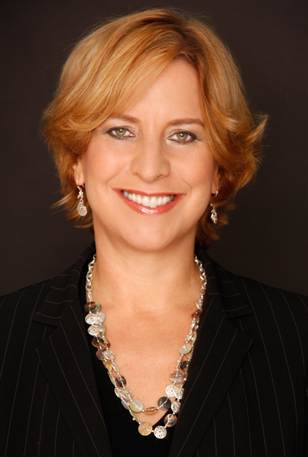Conservative anger, national controversy and debate over journalistic ethics have surrounded Vivian Schiller since she stepped down as CEO of NPR in early March. But Schiller is also a typical Whitman parent—she just went to her first after-school track meet, and is taking her daughter, junior Elizabeth Frank, college-visiting over spring break.
NPR forced Schiller out in early March, after conservative activists released a secretly taped video of NPR fundraising executive Ron Schiller (not related to Vivian) making inflammatory comments such as that the Republican Party had been “hijacked” by a group of people that are “white, middle-America, gun-toting.” Many have said that some of Schiller’s statements may have been taken out of context.
The Black & White talked to Vivian Schiller about her recent experiences in the news, and her views about the future of NPR.

Black & White: What was the career path that led you to become the CEO of NPR?
Schiller: I didn’t start off thinking I’d go into journalism. I was a Russian major in college and grad school. My first job was as a tour guide. But when I was hired by Turner Broadcasting, which owns CNN, to be a translator, I got the journalism bug and never recovered. Now I can’t imagine doing anything else. Before starting at NPR in early 2009, I’d spent nearly 20 years in the news business — at CNN, Discovery Times Channel, and The New York Times. When the opportunity came along to lead NPR, one of the nation’s most important news organizations, I jumped at the chance.
B&W: Why were you asked to resign, even though you were not the one that made the objectionable comments?
Schiller: When you are the CEO, you are accountable for everything that happens in the organization — even if you are not personally to blame.
B&W: Can you explain the incidents that led up to your resignation?
Schiller: NPR’s head of fundraising met for lunch with actors pretending to be philanthropists who wanted to donate money. It turned out to be a sting. The conversation was secretly taped and included comments made by the NPR fundraising chief that were inconsistent with NPR’s values. When the video was posted on the internet, which is when I learned of it, it caused a lot of controversy and put pressure on the NPR’s member stations who were concerned about losing government funding. As a result, the NPR board decided that I should resign.
B&W: It seems that you’ve become the outlet for a lot of conservative anger. How does it feel to suddenly be the target of so much public interest?
Schiller: It’s been very eye-opening to suddenly be in the news, instead of reporting the news. I’ve learned first-hand there are scrupulous journalists and, sadly, many unscrupulous media people who make things up that then get repeated in blogs and via Twitter. I have a new sympathy for people in the public eye.
B&W: Do you think that anti-NPR sentiment from Republicans will be enough to actually cut federal funding? Are you concerned about the future of NPR?
Schiller: We don’t know yet what will happen, but it doesn’t appear that public broadcasting will be entirely defunded. I’m confident that NPR will survive.
B&W: Are there any lessons learned or observations that come to mind following all that you’ve been through recently?
Schiller: Do the right thing. Stay positive. And don’t let others define you.
